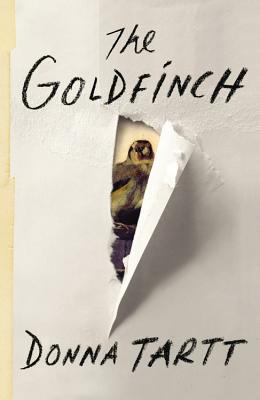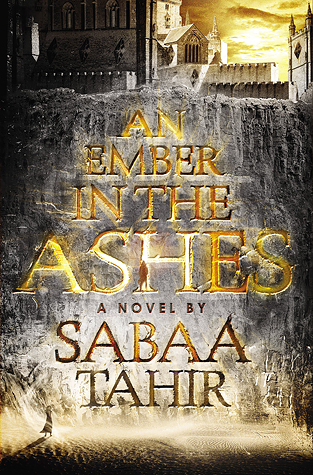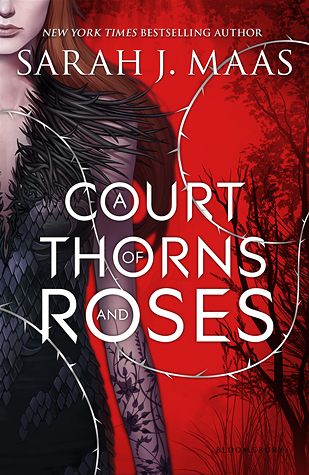The Goldfinch by Donna Tartt. Little, Brown and Company; 2013. 771 pages. Hardcover/Hardback.
Is it possible to both like and dislike a book at the same time? To answer my own question: yes, it is, because that is how I feel about The Goldfinch. And that is exactly what I think makes it so great.
I have no idea how to succinctly summarize this book in a few sentences, but I'll take a stab at it: A young Theo Decker survives a terrorist bombing at a museum, where his mother does not, and he now feels ultimately responsible for her death. Before leaving the museum after the bombing, Theo steals a painting (though not entirely with the thought of stealing on his mind) that his mother adored, and spends the rest of the novel in deep, deep agony and anxiety over the thought of getting caught with it. However, the rest of the novel also follows Theo's extremely complicated life as he grows into a man, and also how he becomes involved in the dirty, gritty art-thief underworld.
I'm not sure when the last was that I was this conflicted about a book. There are pages and pages of details that could easily be removed in an annotated version (not that I'm suggesting there actually should be an annotated version - I don't). However, the book would lack much of its character without the details - they are part of what makes this novel work so well. Dashes, as well as all other forms of punctuation, are used a lot, and there is a major sense of stream of consciousness that permeates Tartt's writing and drags the reader along for a whirlwind of a ride. I love her style of listingHer writing is so strong and almost obnoxious at times that I wouldn't disbelieve someone having a physical reaction to it. I could feel myself panicking along with Theo; I could feel my heart racing as Tartt's sentences became short, hurried, and jumbled. It's not a very lighthearted book, but it's also not in-your-face dark. It sort of drags on in this somewhat negative, somewhat ho-hum manner.
The characters are also hard to love, but also hard to hate. At times, I understood Theo, but at others, I couldn't stand him or figure out what was going on in his head. Deep down, Theo is simply the result of fragmented and broken childhood, struggling to make terms with himself and figure out his own life. However, he doesn't really actively try to figure out his life; instead, he just goes along with the flow, letting life take him where it does. There are few instances where Theo decides that he is going to take the reins and do something his way, such as when he decides to leave Las Vegas. Even then, though, this was a direct result of other circumstances (which I will not mention so as not to add spoilers). Theo is quiet and reserved, yet also impulsive and risk-taking. All these qualities in Theo makes it hard to decide whether he is one that should be pitied for having such a difficult life, or disdained for his irresponsible and sometimes uncaring behaviour.
We also have Boris. Where do you start with Boris? How does one even describe him? Boris is the son of a Ukrainian man that Theo meets in Las Vegas, who soon becomes one of his closest and only friends. Boris is free-spirited. He does what he wants, when he wants; he's extremely street smart, and seems to know everything, including how to get out of any sticky situation. Tartt does a really wonderful job of conveying Boris' accent; I swear I could actually hear that odd, English-learned-in-Australia-yet-Russian accent, and it was perfect.
There are so many other characters that I would love to delve into more, such as Andy, Hobie, Mrs. Barbour, Pippa, Kitsey, Xandra, and Theo's father, but I will refrain myself. Theo has many, many interactions with various people, and it is through these interactions that we begin to more fully understand who Theo really is as a person. Each relationship seems to reveal a little bit more about his personality, history, or opinions, and it provides a vast amount of information about Theo's character.
One other quick point I wanted to touch on regarding character relationships was Theo's relationship with his mother was also somewhat puzzling to me. There wasn't anything inappropriate, so I'm not implying that. But it didn't seem like the normal mother and son relationship; of course, everyone's relationship is different, but the way in which he reminisced and thought about their time together was displayed in an odd way. It was more like a long lost lover than a motherly relationship; he dreamed of their moments together, but not in a truly grief-stricken way. At the end, he mentions that
The Goldfinch is really rather haunting. Even when I put the book down, I could feel it lingering around me; I could still feel that bleak, drug-riddled mania that Theo so often had. I felt like I was constantly reading this book, and it felt as though it was taking me ages to make it through. It's a depressing book. I never walked away from it feeling happy or satisfied; I felt, instead, as if I were missing something - it was an uneasy sort of feeling. That being said, it's still addicting. I went through many phases where I truly enjoyed the story, and others when I just wanted it to be over. By the last 200 or so pages, I just wanted it to be over. Unnecessary plot lines and events became too much and I needed to finish this book so that I could move on with my life. At times it was difficult to remember what the plot or point of this novel was, and I could never truly decide if this novel was more about Theo and the painting, or Theo's personal life and development. Despite this, Tartt's prose truly does have moments of utter beauty; there are many passages and quotes that I would love to share, but I will share just one that I feel exemplifies Tartt's meaningful, deep, and breathtaking style:
“That life - whatever else it is - is short. That fate is cruel but
maybe not random. That Nature (meaning Death) always
wins but that doesn’t mean we have to bow and grovel to it.
That maybe even if we’re not always so glad to be here, it’s
our task to immerse ourselves anyway: wade straight
through it, right through the cesspool, while keeping eyes
and hearts open. And in the midst of our dying, as we rise
from the organic and sink back ignominiously into the organic,
it is a glory and a privilege to love what Death doesn’t touch.”
Honestly though, I don't know who to specifically recommend this book for because it covers such a wide variety of subjects. There are drugs, art history, young boy/teen adventures, bad parents, good parents, thievery, antiques, international travel, and so much more. If you have time, patience, and a thirst for something different, then I would implore you to give The Goldfinch a chance. It is long, arduous journey, but I think you'll be just as intrigued by Theo's life and struggles as I was, and therefore unable to put that book down. Even when you do, it will still remain stamped in your memory, and for that reason, I feel it deserves four stars.The overarching theme that "life is short" is a beautiful ending to this book, and I believe that it is something that everyone can learn, and no one can ever hear too much.




